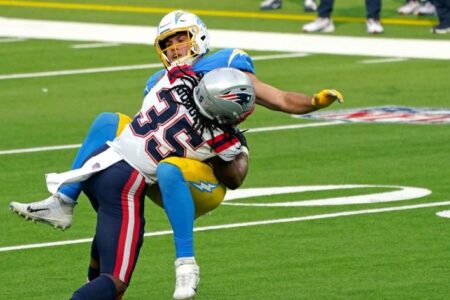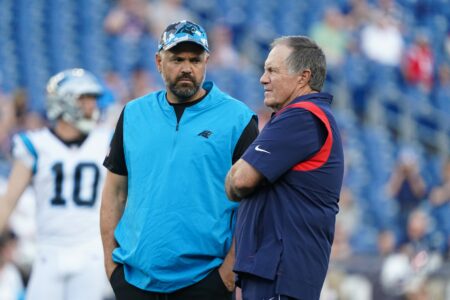- Joined
- Jul 11, 2005
- Messages
- 15,517
- Reaction score
- 27,504
....that is linked to the first one.
I'm thinking that if the owners are willing to give up some aspect of the franchise tag, you'd think the union would have to give up something in order to get it done. Well here's what they should do.....IMHO.
The union and the owners should get together and get the rookie salaries under control. 8 figure GUARANTEES are ridiculous for players chosen in the first round who haven't played a down in the league. The union should be OK with this because the money that isn't going to the rookies would be going to the more veteran players. In fact you could tie in 3 issues here. The franchise tag, the rookie salary structure, and the veteran minimum.
ROOKIE SALARY STRUCTURE - There should be a strict maximum that a player can be signed for IN THEIR FIRST YEAR. It should be something like $2MM for the top pick and work its way down. Each player would be able to negotiate a multi year contract, but the FIRST year would be strictly controlled. In the second and ongoing years the player can negotiate any amount the market will bear based on agreed upon incentives like games played, wins etc. Pretty much like they do now, but AFTER the first year.
Now that you've freed up millions of dollars that the DON'T have to play untried kids who haven't played a down, they can give back that money to the guys who have EARNED it. Raise the Vet minimum a hundred thousand or so, and lower the cap consequence for keeping a minimum wage vet instead of an untried rookie. Its fairer all around.
THis might put a dent in that sense of entitlement that a number of first round rookies walk around with. It might even allow teams to get rid of busts earlier.
I'm thinking that if the owners are willing to give up some aspect of the franchise tag, you'd think the union would have to give up something in order to get it done. Well here's what they should do.....IMHO.
The union and the owners should get together and get the rookie salaries under control. 8 figure GUARANTEES are ridiculous for players chosen in the first round who haven't played a down in the league. The union should be OK with this because the money that isn't going to the rookies would be going to the more veteran players. In fact you could tie in 3 issues here. The franchise tag, the rookie salary structure, and the veteran minimum.
ROOKIE SALARY STRUCTURE - There should be a strict maximum that a player can be signed for IN THEIR FIRST YEAR. It should be something like $2MM for the top pick and work its way down. Each player would be able to negotiate a multi year contract, but the FIRST year would be strictly controlled. In the second and ongoing years the player can negotiate any amount the market will bear based on agreed upon incentives like games played, wins etc. Pretty much like they do now, but AFTER the first year.
Now that you've freed up millions of dollars that the DON'T have to play untried kids who haven't played a down, they can give back that money to the guys who have EARNED it. Raise the Vet minimum a hundred thousand or so, and lower the cap consequence for keeping a minimum wage vet instead of an untried rookie. Its fairer all around.
THis might put a dent in that sense of entitlement that a number of first round rookies walk around with. It might even allow teams to get rid of busts earlier.


















